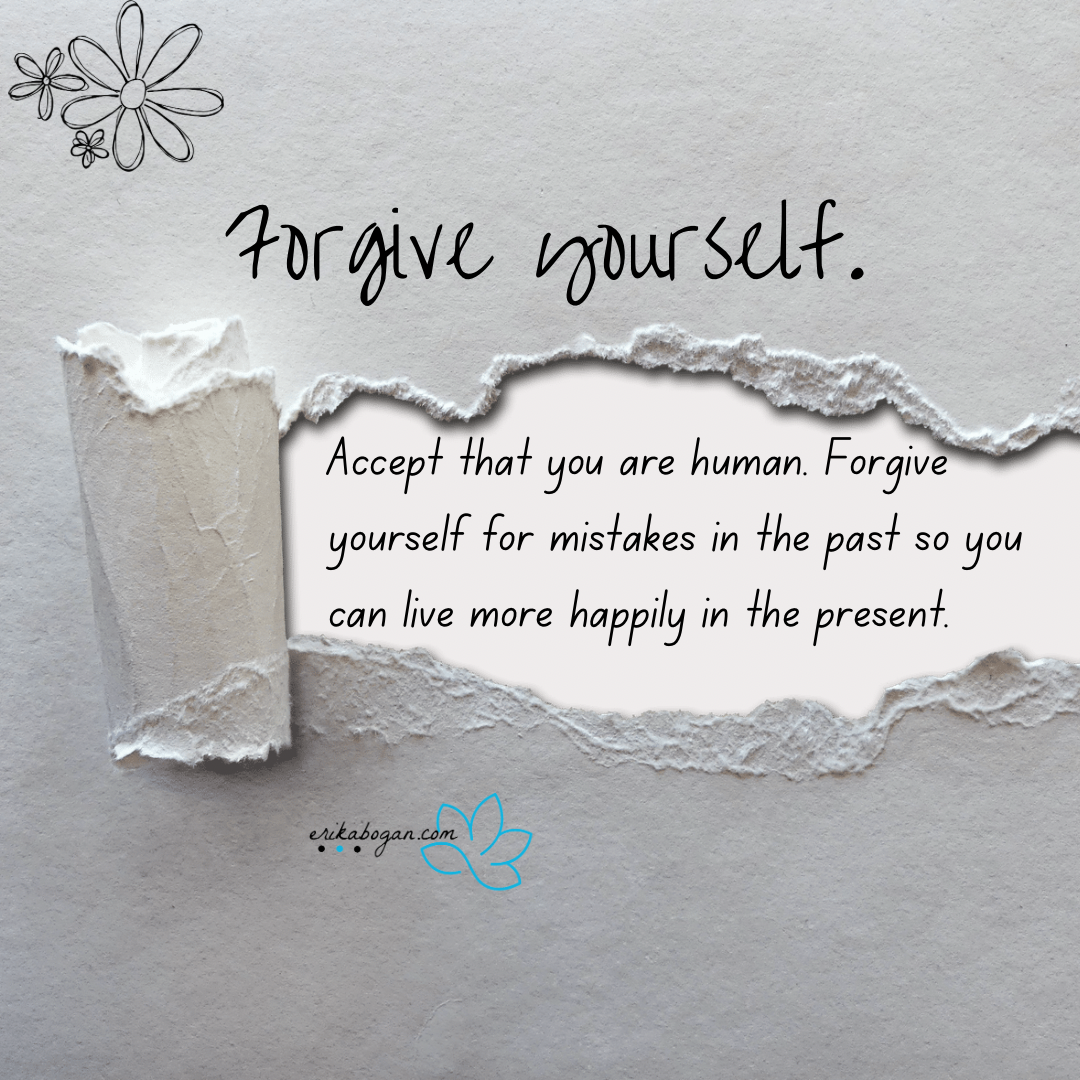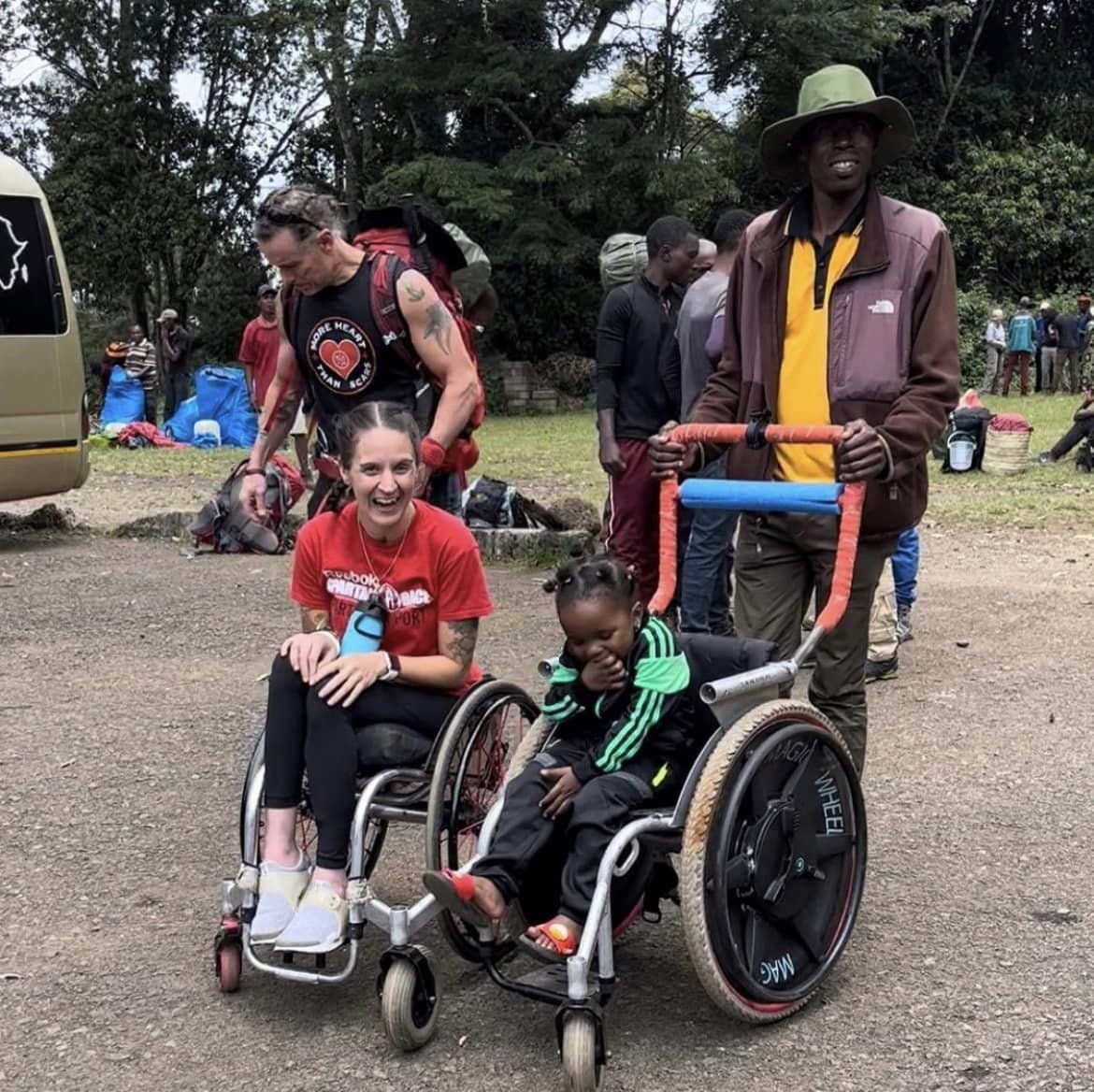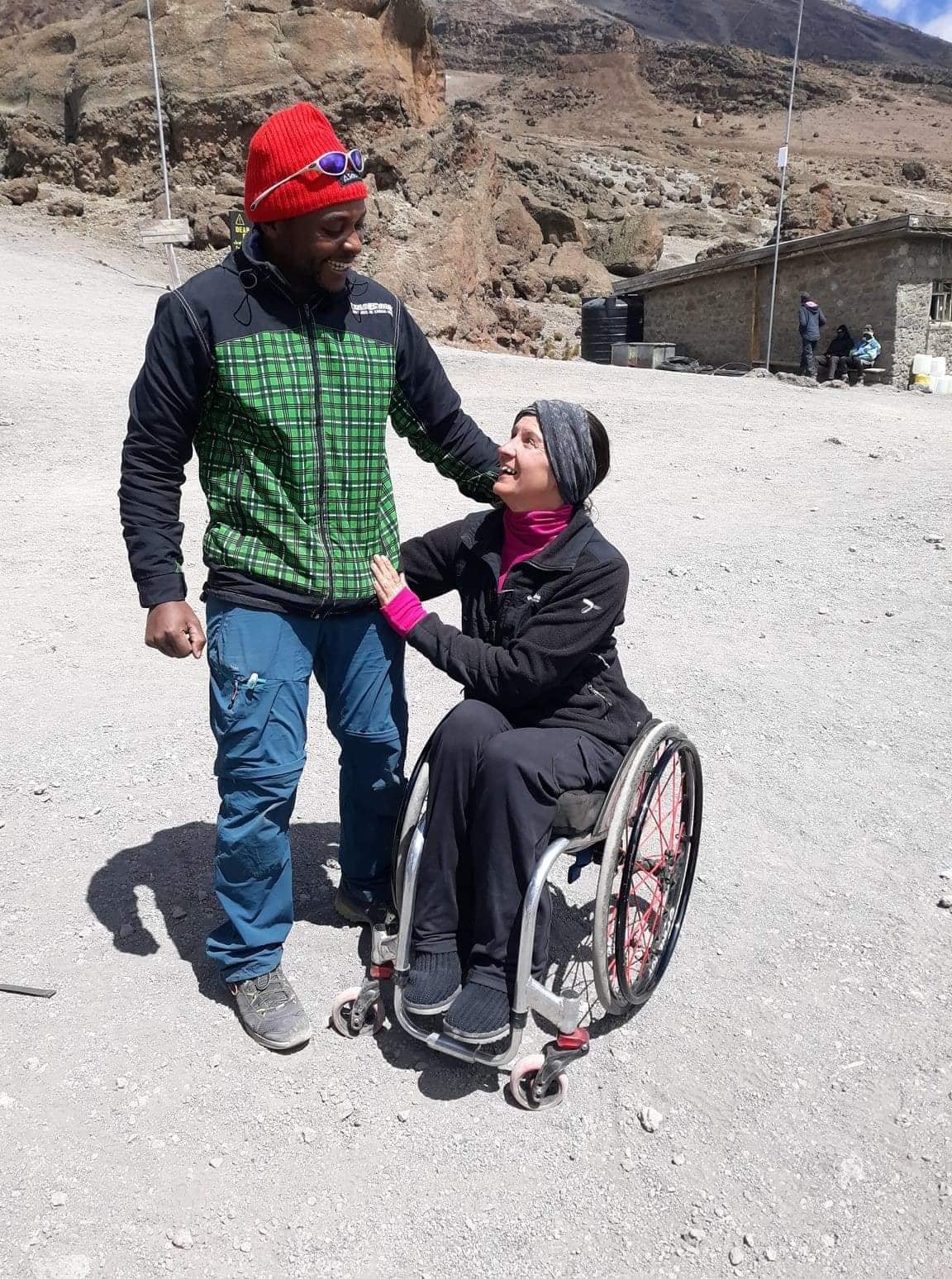You may at times do something that challenges your own self-perception. And it can be hard to reconcile with yourself when you do something that negatively affects you or others. Here are some tips for how to internally practice self-forgiveness:
Think back. Think back to a time in your life when you felt safe and cared about someone. Remember who that is — it could be a friend, relative, teacher, mentor, spiritual figure, or a pet. Visualize the feeling of being around them and being protected. Let yourself feel safe. Then, together with your protector, list all of your positive qualities.
Remember the event. Next, acknowledge the facts surrounding what you need to forgive yourself for. Remember back to the specific event and how it made you feel. Notice what is hard to face. Make a list of what happened and sort it all into three different categories: moral faults, unskillfulness, and everything else. Moral faults call for guilt or remorse, and unskillfulness requires correction like committing to never doing a certain act again.
Don’t avoid guilt. Not feeling great about doing something bad is healthy and natural. If we wipe away the bad feelings of doing bad, what are we left with? However, there is a difference between shame and guilt. Shame comes with defensive feelings like denial, avoidance, and violence. It is not helpful to tell yourself that you are a bad person at your core and feel guilty. By doing so, you may not think that you can change. Feeling guilt over your actions, however, can help you not repeat them.
Take responsibility. You cannot forgive yourself if you don’t own up to what you did both to yourself and to the person you have wronged. Let them know that you take accountability for what you did and let yourself know this too. Learn to fully accept that you did whatever you did.
Try to repair the damage. It may be hard for you to truly forgive yourself if you feel you haven’t done what you need to do to make amends. Perhaps this means offering financial aid, repairing the property, or simply saying sorry to someone.
Have empathy for more than yourself. It has been found that people have trouble with self-forgiveness when they also have empathy with the other party involved. It’s normal for people to struggle with this tension. However, without having empathy for both yourself and the other person, this self-forgiveness can be empty and not mean much.











